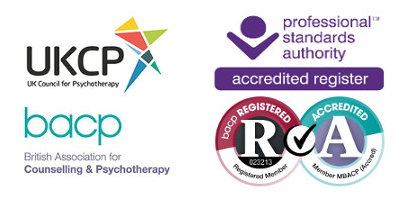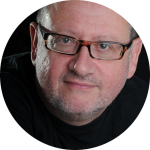Therapy for Anxiety in London
Managing Panic Attacks & Overwhelm with Marcus
If the feeling of anxiety, dread or panic has become the ‘norm’ for you in your work or personal life, therapy can help to reduce or remove what can feel like a crippling and incapacitating emotional response to everyday events.
- Are you avoiding people or places because they make you feel anxious?
- Do you dread opening your ‘inbox’ for fear of seeing an email you need to respond to?
- Is the thought of a social event on the horizon, one you want to ‘squash’ and ignore?
In isolation these may not seem to be big issues. However, when your life starts to become governed by the effort of avoiding situations or even thoughts because of the anxiety they provoke, it’s time to take the first step to tackle the panic or dread through an appropriate, skilled process of therapy.
“I sing the body electric. I celebrate myself, and sing myself. Do I contradict myself? Very well then, I contradict myself: I am large, I contain multitudes.” – Walt Whitman, poet
Am I experiencing excessive anxiety or a panic attack?
Anxiety has all the physical hallmarks of fear, that follow from the release of stress hormones such as adrenalin and cortisol: muscles tense, breathing quickens, the heart rate accelerates, blood vessels constrict, blood pressure rises, skin flushes, sweating increases, pupils dilate and your senses narrow.
Your body is roused, you feel angry or excited, and ready to fight a threat or to flee or hide from danger – the well-known ‘fight or flight response’.
Only, there usually is no real, physical ‘danger’
You may recognise that you are anxious or in a state of overwhelm if you identify with any of these common behavioural patterns:
- Experiencing frequent, unexpected attacks of panic or overwhelm that seem to be triggered by a regular situation or location – in either work or personal life
- Regularly worrying about ‘having another panic attack’, which is in itself making you feel anxious
- Adjusting your behaviour to avoid the chance of another panic episode e.g. avoiding locations, public transport, certain groups of people or social occasions
Avoidance is a very strong indicator that you are not coping well with your level of anxiety.
- Avoiding opening emails
- Avoiding answering phone calls
- Avoiding meetings or social groups
‘Anxiety’ describes a state of fear that is disproportionate to your actual circumstances.
This isn’t the healthy ‘existential anxiety’ which is just part of being a self-aware, human being. This is the kind of anxiety that prevents you from fully enjoying life, and therefore deserves the serious attention that a therapist can help bring to it.
High levels of anxiety can really limit and constrain your life, making it difficult to travel (agoraphobia, fear of flying) or to mix socially (social anxiety) or just to get through an average day calmly (panic attacks, hypochondria, road rage, phobia or dread).
What happens when you are feeling anxious?
You will know that, when you are anxious, you tend to make poor choices and decisions, you may lose sleep, and you may have unpleasant physical symptoms because the digestive system and the skin are both liable to be affected.
Why do I feel anxious in certain ‘normal’ situations?
Your brain’s map of the world is a very personal, individual map. It was drawn mostly during your early childhood. At that time, you were not able to stand up for yourself. If you were lucky, you got a reasonable amount of care and protection, but no child gets all the protection they need, and everyone has a ‘brain map’ on which particular threats and dangers are deeply etched.
It is this ‘emotional brain’ that decides what you perceive to be dangerous. This does not mean there is anything wrong with you at all. Your ’emotional brain’ jumps to conclusions based on rough similarities between past and present conditions. Hence, there will be some events in your current life, which you ought in theory to be able to cope with in a logical, calm manner, which in fact are experienced by your body as acute, dangerous emergencies.
Therapy for Anxiety in London
Therapy will give you the tools to reduce anxiety. It is about identifying the triggers to your episodes of panic or anxiousness and modifying your patterns, those that link body and brain. This means exploring your patterns of behaviour, patterns of thinking, even patterns of muscular tension and relaxation, all of which we can work with according to tried and tested methodologies.
Take the first step to taking control and managing your panic, and contact Marcus to discuss Therapy for Anxiety.
Some helpful articles and web pages on Anxiety, Panic and Overwhelm
- A good list of coping mechanisms for anxiety, overwhelm and panic
- An interesting article on someone’s recovery from excessive anxiety



